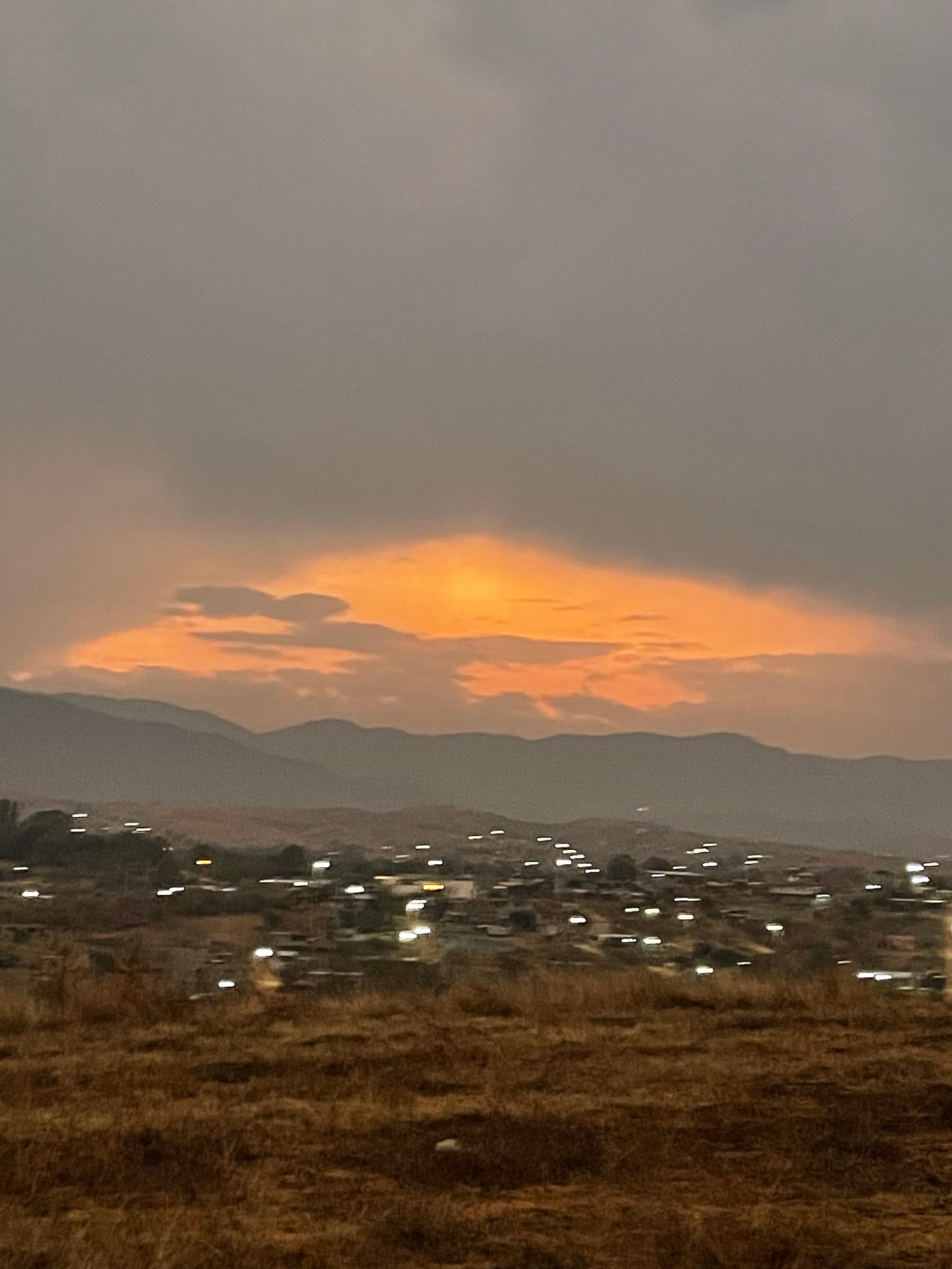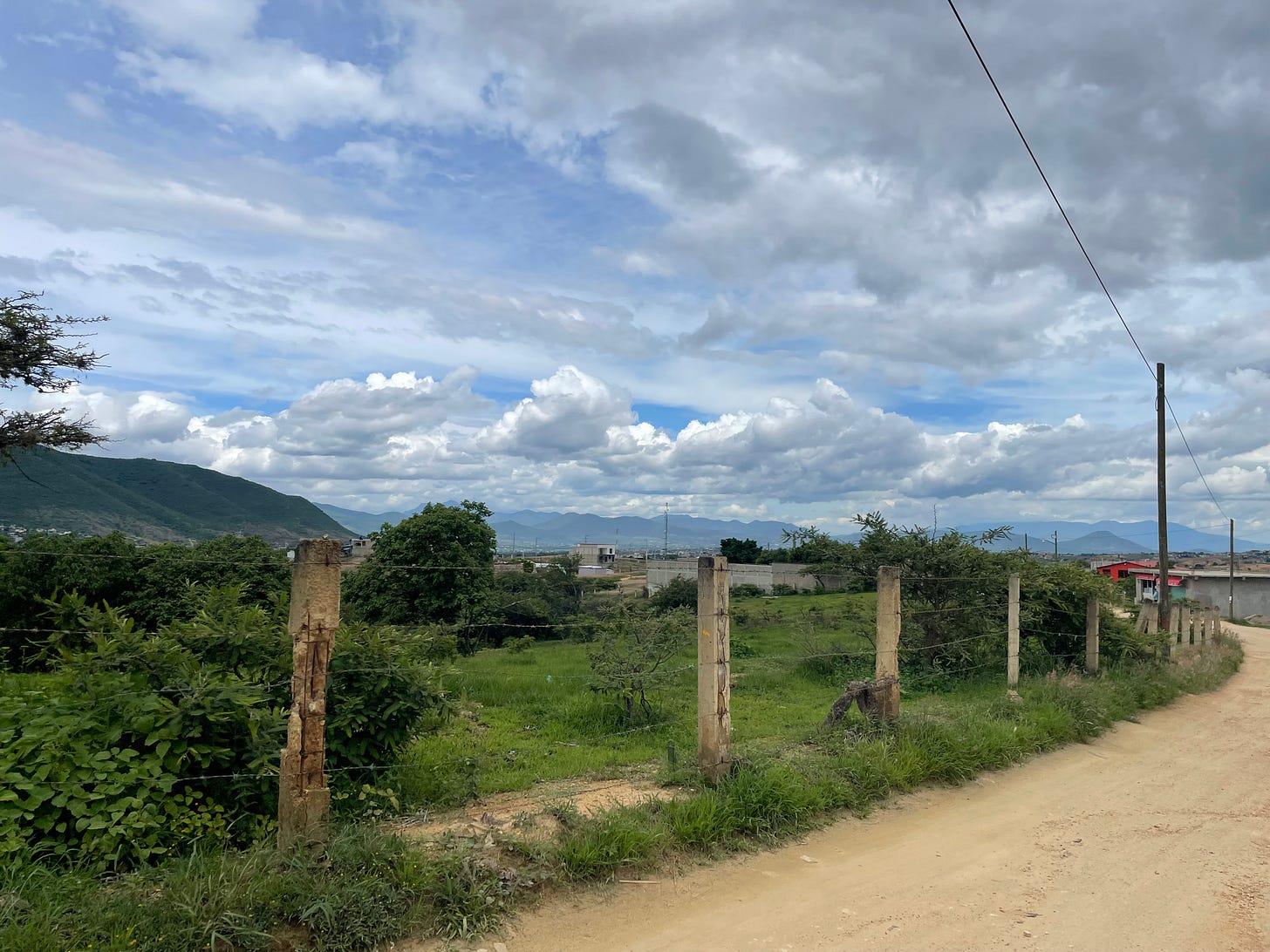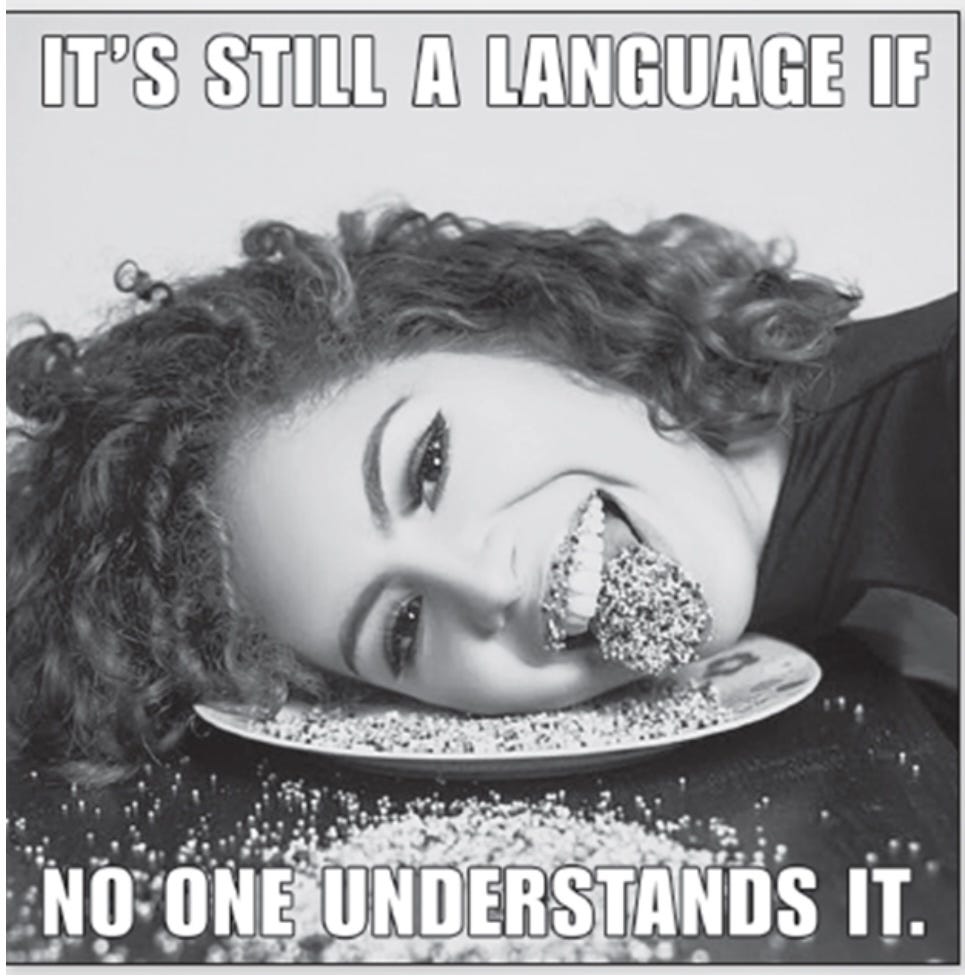One of the hardest things I had to learn to do when we moved to southern Mexico almost 9 years ago was to learn to adjust to life.
I know that sounds strange. Everyday life is all about adjusting. The F train suddenly goes express. What to do? The hot water heater stops functioning. What to do? The fruit and vegetable store is out of strawberries. And blueberries.
And of course there are the larger issues. You get Trump. You get Ukraine and Russia and Israel and Gaza. And Iran. There’s Covid. There’s environmental devastation. There’s the awful losing streak the Mets recently went through.
There are nice things too. Tuesday, despite the heat wave, the voters turned out and NYC got Mamdani! (For those who want to know why I think this is a good thing, here’s an article from the June 25th Forward by Rabbi Jay Michaelson I found compelling: https://forward.com/opinion/732016/what-mamdani-victory-means-for-jews-nyc-mayor/?utm_source=Mailchimp&utm_medium=email&utm_campaign=afternoonedition_20250625&utm_source=The+Forward+Association&utm_campaign=ebf92dfdc2-EMAIL_CAMPAIGN_2025_04_25_04_22_COPY_01&utm_medium=email&utm_term=0_-9a85c28f87-288566760)
All of these though feel like familiar adjustments. They were the adjustments I knew how to make because I knew something about them. And something about me. Even if I didn’t know exactly what to do I knew how to figure out what to do.
Mexico threw me for a loop. It disoriented me and disorganized me. It wasn’t just a question of language and culture, about weather and geography, about politics and poetry. It was that the longer we’ve lived here, the more I’ve realized that all those certainties I thought I’ve had for myself have disappeared. I know myself less than I thought I did.
Moving here became an adjustment to doubt. An adjustment to feeling safe in uncertainty. It became a letting go of identity.
I’ve felt comfortable with my labels. I would say I’m a poet rather than that I write poetry. I’m a professor rather than that I teach. I said I’m a father or a husband, a son or a friend, and I’d fall back on those rather than think about the ongoing and powerful ways that I lived inside those relationships
In a sense what happened in moving here is that I started to see myself less as noun than as a verb. An idea that who I am has to do with growth and change, with how I live and think and feel, that it’s journey, not destination.
I’m not sure why it took moving here for me to start to let myself get out of the way of my self. Why it took moving here to make me question the essence of how I live.
So how’s it going? Well might you ask! I’m not sure. But every day feels like I’m walking into another unknown. Some days that scares me. Most days? It feels like an adventure. I have no idea what’s coming. But if I did, how much of an adventure could it really be?
This week’s featured poet for Poet in Mexico is Joanna Fuhrman. Joanna, an Assistant Teaching Professor in Creative Writing at Rutgers University and the author of seven books of poetry, including Data Mind (Curbstone/Northwestern University Press, 2024) is a marvelous poet. I first met her at the St Marks Poetry Project—at a time when it seemed to me like the Poetry Project must be the center of the poetry world. I liked talking with her right away—she’s smart and funny, without affectations or airs. Just the kind of person who one can fall into friendship with because that’s how friendships happen.
Of course it worked out that we shared mutual friendships with other people. Two of them were people who have been incredibly important in my life: one, the late Bob Hershon, the quiet poet and Mets fan who, along with Dick Lourie and Mark Pawlak, founded Hanging Loose Press. Hanging Loose is one of the seminal small presses of our time. Joanna and I both published with the press, in the magazine and with books. She first did it as a teenager and in 2022, after Bob’s death, she became one of Hanging Loose’s co-editors, ensuring that the press would continue producing a dynamic, exciting magazine and cutting edge books of poetry.
The second person was David Shapiro. I studied with David as an undergraduate. Joanna got to know David a number of years later and she was one of the people closer to him in the last years of his life. Joseph Lease and I recently collaborated on a chapter for a book called Poets’ Poets: A Renaissance of Words, edited by Dennis Barone, to be published soon by Spuyten Duyvil. In our chapter, Genius: The Vision and Voice of David Shapiro (1947-2024): A Conversation, we argue that David is one of the most important poets of the late 20th/early 21st century. For some of us, though, he was more. He was a mentor and a friend. He championed our work. He had faith in who we were and what we were doing. https://spuytenduyvil.net/Poets-Poets.html
David loved Joanna’s poetry. I hope you do too.
From Data Mind Click Here to Learn More I asked ChatGPT to give me a metaphor for my childhood trauma, but it answered in a language only translatable by ghosts. When I Instant Messaged all the ghosts I knew, two of them were busy redecorating their goth/Barbiecore Airstream, one had gotten lost in a mega-market’s new walk-in-fridge, and the other three had taken hallucinogens made from rabbit poop and had yet to regain consciousness. So I opened my favorite coercive control exposé message board. This time, instead of the usual blog links and inside jokes, I saw a video of myself, and on it the scars from when I was ten and the substitute teacher hit me with an open bag of Funyuns. The screen was suddenly full of scars, not only my scars. Scars belonging to people I’d never met and scars on the flesh of people I had only met in the Internet’s speckled non-space. All the scars. All scars. Wiggling scars. Popping and locking scars. Right there in the redacted comments of our subreddit: a chorus line of boogeying scars cut the carpet into rugs. Years later—after I had gotten married, landed my dream job, bought a house, earned a title in my duckpin league and learned to use the sous vide wand I had been given at my retirement party—I found that scar again. I had been examining my body in preparation for my annual dermatology appointment, and there it was. I had almost forgotten about it, but when I saw it again, I was not surprised to see it sway.
It’s Not a Language If Everyone Understands It The problem with living one’s life online is that there is no problem. You wake up, pet the cat, throw some words into the void, and the next thing you know your death is sitting right there, wearing a red prom gown and throwing paper airplanes through the window. Is this what you imagined it would smell like when your childhood unraveled? Burnt rose stems? Underwire bras? The night you dream about getting fitted for a wet suit, your teeth grow three centimeters. The station wagon buried in the backyard comes to life, demanding open-faced sandwiches and overpriced psychoanalysis. Your mother wakes up in her grave and wants to know why you are storing sanitary napkins in her favorite yellow purse. It’s not a language if no one understands it, you want to scream at your lawn gnome, but you don’t own a lawn gnome. Yesterday, you tried lining up all of your favorite words in a row as if you were a sous chef, as if God would come around later, combine them into some sort of meal. (Copyright © 2025 by Northwestern University. Published 2025 by Curbstone Books / Northwestern University Press. All rights reserved.) From The Last Phone Booth in the World (manuscript-in-progress, poem originally appeared in Hanging Loose magazine.) American Dream Shopping Mall (for Bob Hershon) On the way to your memorial at the American Dream Shopping Mall, I get lost in the tunnels where teen gangsters from a movie set in the 50’s but made in the 80’s dangle their wingtips over the void. At the service in the food court, you hold court. You tell us what music to play, what color button-down to wear, and what kind of veggie or salami we should wave like flags in the air. No one is surprised we are in a shopping mall, despite that when you were alive, you mocked the blahness of mall life— perplexed that anyone could survive without good pastrami or authentic Szechuan, but then, again, maybe it’s appropriate, maybe being dead is like hanging out in a shopping mall. In both, the scent of cinnamon buns is always intermingling with the sting of disinfectant. By a potted rubber tree, you ask me to retell the story about why you used to call me “pigtails.” I try to remember the details but get them all wrong. You interrupt. Just let me tell it myself….
Good Links: Fuhrman, Cannonball, Gabriel
Joanna Fuhrman: Data Mind, etc.
Data Mind is available from Curbstone/Northwestern University Press. As usual, my vision is you go to your local independent bookstore and say, Hey, please order this book for me! https://nupress.northwestern.edu/9780810147751/data-mind/
For more on Joanna, check out her website: joannafuhrman.com
Cannonball Statman, F Train Over Brooklyn
Well, since I mentioned the F Train, hard for me not to recommend you look at Jesse’s song, F Train Over Brooklyn. This version he recorded with Jason Trachtenburg in the UK. I like it for the live energy.
Ana Gabriel, Adiós Tristeza
In the late 1980’s when we first started coming to Mexico, the voice of Ana Gabriel was everywhere—distinctive and haunting. Gabriel continues to perform, continues to entrance. Here is one of my favorites from her 1990 album Quién Como Tú.







When I came to México I noticed two big cultural differences...time and space.
When we go to a fiesta and arrive exactly at the starting time, often they are just beginning to set up the tables.
A young woman from the US lived with a Mexican family to learn Spanish. She was relating that when she was a little girl she had her own room and bed. A little girl in the family then told her excitedly, "If I had known that, I would have come up there to sleep with you!"
Love the phrase “. . . feeling safe in uncertainty.” Suzuki Roshi taught that “don’t know mind” is the gateway to wisdom. Happy pathing!